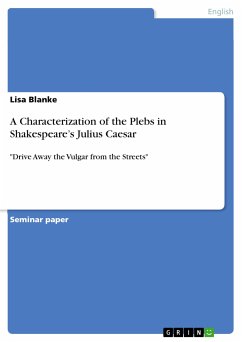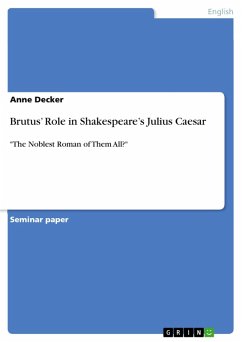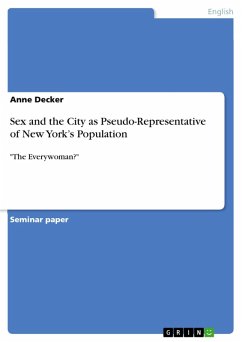Seminar paper from the year 2012 in the subject English Language and Literature Studies - Literature, grade: 1,3, University of Münster (English Department), course: Literatur und Kulturwissenschaft -Shakespeare: The Roman Plays, language: English, abstract: The first associations with William Shakespeare's Julius Caesar are generally the main characters Caesar and Brutus and the consequent conflict between loyalty to a friend and the common good. Furthermore there are the conspirators or other important characters known from history, but there is an important "figure" which is more essential than it seems at first sight: the plebs. A major part of the play is about Brutus¿ struggle about the common good. In fact he never puts this into concrete terms. "For the good of Rome" (JC 3.3.45) should be the same as 'for the good of the plebeians', since they are the biggest group of people living in Rome. What exactly Brutus meant by that stays vague. In contrast to this it is obvious that in the end the plebeians not only lose their beloved Caesar but also the most important thing in a community: peace. Cassius characterizes the plebs "sheep" (JC 1.3.105), "trash" (JC 1.3.108) and "offal" (JC 1.3.109). Nevertheless the plebs are at the same time (evident) reason for the conspiracy and reason for its failure, thus symbols of the ambiguity of the conspirators intentions. Their characteristics are crucial for the process of the tragedy. In the following chapters I am going to characterize the plebeians on the basis of their development in the course of the play, focusing on the three scenes in which they appear and then subsequently elaborate their attributes.
Dieser Download kann aus rechtlichen Gründen nur mit Rechnungsadresse in A, B, BG, CY, CZ, D, DK, EW, E, FIN, F, GR, HR, H, IRL, I, LT, L, LR, M, NL, PL, P, R, S, SLO, SK ausgeliefert werden.









